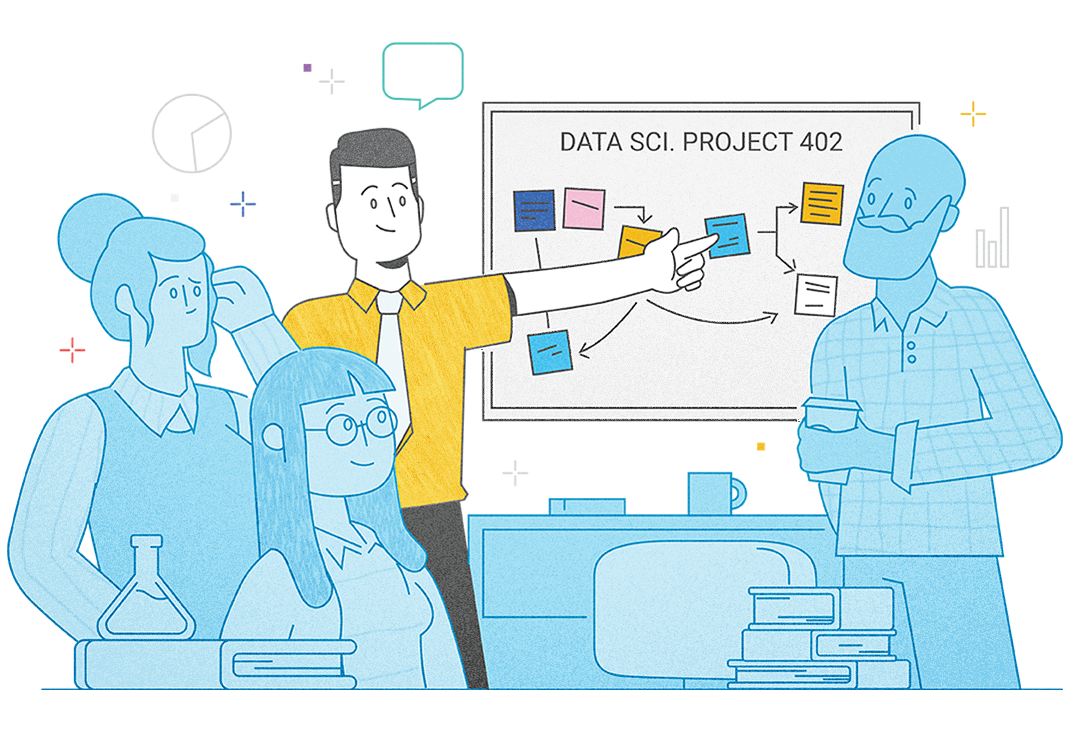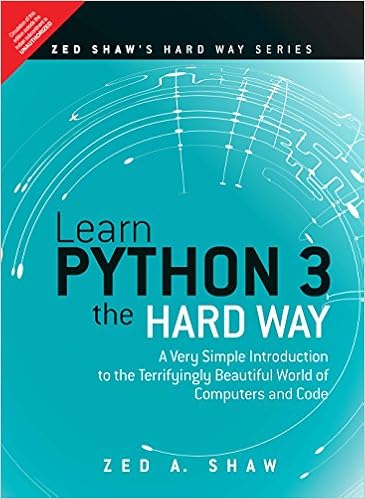Data Scientist Training Free of Charge
Now, in theory, it is possible to become a data scientist, without paying a dime. What we want to do in this article is to list out the best of the best options to learn what you need to know to become a data scientist. Many articles offer 4-5 courses under each heading. What I have done is to search through the Internet covering all free courses and choose the single best course for each topic.
These courses have been carefully curated and offer the best possible option if you’re learning for free. However – there’s a caveat. An interesting twist to this entire story. Interested? Read on! And please – make sure you complete the full article.
Topics For A Data Scientist Course
The basic topics that a data scientist needs to know are:
- Machine Learning Theory and Applications
- Python Programming
- R Programming
- SQL
- Statistics & Probability
- Linear Algebra
- Calculus Basics (short)
- Machine Learning in Python
- Machine Learning in R
- Tableau
So let’s get to it. Here is the list of the best possible options to learn every one of these topics, carefully selected and curated.
Machine Learning – Stanford University – Andrew Ng (audit option)
Machine Learning Course From Stanford University
The world-famous course for machine learning with the highest rating of all the MOOCs in Coursera, from Andrew Ng, a giant in the ML field and now famous worldwide as an online instructor. Uses MATLAB/Octave. From the website:
This course provides a broad introduction to machine learning, data mining, and statistical pattern recognition. Topics include:
(i) Supervised learning (parametric/non-parametric algorithms, support vector machines, kernels, neural networks)
(ii) Unsupervised learning (clustering, dimensionality reduction, recommender systems, deep learning)
(iii) Best practices in machine learning (bias/variance theory; innovation process in machine learning and AI)
The course will also draw from numerous case studies and applications, so that you’ll also learn how to apply learning algorithms to building smart robots (perception, control), text understanding (web search, anti-spam), computer vision, medical informatics, audio, database mining, and other areas.
This course is extremely effective and has many benefits. However, you will need high levels of self-discipline and self-motivation. Statistics show that 90% of those who sign up for a MOOC without a classroom or group environment never complete the course.
Learn Python The Hard Way – Zed Shaw – Free Online Access
Learn Python The Hard Way Online Access
You may ask me, why do I want to learn the hard way? Shouldn’t we learn the smart way and not the hard way? Don’t worry. This ebook, online course, and web site is a highly popular way to learn Python. Ok, so it says the hard way. Well, the only way to learn how to code is to practice what you have learned. This course integrates practice with learning. Other Python books you have to take the initiative to practice.
Here, this book shows you what to practice, how to practice. There is only one con here – although this is the best self-driven method, most people will not complete all of it. The main reason is that there is no external instructor for supervision and a group environment to motivate you. However, if you want to learn Python by yourself, then this is the best way. But not the optimal one, as you will see at the end of this article since the cost of the book is 30$ USD (2100 INR approx).
Interactive R and Data Science Programming – SwiRl
Interactive R and Data Science Course (In Console)
Swirlstats is a wonderful tool to learn R and data science scripting in R interactively and intuitively by teaching you R commands from within the R console. This might seem like a very simple tool, but as you use it, you will notice its elegance in teaching you literally how to express yourselves in R and the finer nuances of the language and integration with the console and tidyverse. This is a powerful method of learning R and what is more, it is also a lot of fun!
Descriptive and Inferential Statistics
Course on Statistics and Probability from KhanAcademy
KhanAcademy is a free non-profit organization on a mission – they want to provide a world-class education to you regardless of where you may be in the world. And they’re doing a fantastic job! This course has been covered in several very high profile blogs and Quora posts as the best online course for statistics – period. What is more, it is extremely high quality and suitable for beginners – and – free! This organization is doing wonderful work. More power to them!
Mathematics for Data Science
Now the basic mathematics for data science content includes linear algebra, single-variable, discrete mathematics, and multivariable calculus (selected topics) and basics of differential equations. Now you could take all of these topics separately in KhanAcademy and that is a good option for Linear Algebra and Multivariate Calculus (in addition to Statistics and Probability).
For Linear Algebra, the link of what you need to know given in a course in KhanAcademy is given below:
Course on Linear Algebra From KhanAcademy
For Multivariate Calculus
Course on MultiVariate Calculus From KhanAcademy
These courses are completely free and very accessible to beginners.
Discrete Mathematics
This topic deserves a section to itself because discrete mathematics is the foundation of all computer science. There are a variety of options available to learn discrete mathematics, from ebooks to MOOCs, but today, we’ll focus on the best possible option. MIT (Massachusetts Institute of Technology) is known as one of the best colleges in the world and they have an Open information initiative known as MIT OpenCourseWare (MIT OCW). These are actual videos of the lectures taken by the students at one of the best engineering colleges in the world. You will benefit a lot if you follow the lectures at this link, they give all the basic concepts as clearly as possible. It’s a bit technical because this is open mostly for students at an advanced level. The link is given below:
MIT OpenCourseWare Course: Mathematics for Computer Science
For beginners, one slightly less technical option is the following course:
Course on Discrete Mathematics for Computer Science
It is also technical and from MIT but might be a little more accessible than the earlier option.
SQL
SQL (see-quel) or Structured Query Language is a must-learn if you are a data scientist. You will be working with a lot of databases, and SQL is the language used to access and generate data from database systems like Oracle and Microsoft SQL Server. The best free course I could find online is undoubtedly the one below:
Udemy Course for SQL Beginners
SQL For Newcomers – A Free Crash Course from Udemy.com.
5 hours-plus of every SQL command and concept you need to know. And – completely free.
Machine Learning with Scikit-Learn
Scikit-Learn Online Documentation Main Page
We have covered Python, R, Machine Learning using MATLAB, Data Science with R (SwiRl teaches data science as well), Statistics, Probability, Linear Algebra, and Basic Calculus. Now we just need to get a course for Data Science with Python, and we are done! Now I looked at many options but was not satisfied. So instead of a course, I have provided you with a link to the scikit-learn documentation. Why?
Because that’s as good as an online course by itself. If you read through the main sections, get the code (Ctrl-X, Ctrl-V) and execute it in an Anaconda environment, and then play around with it, experiment, and observe and read up on what every line does, you will already know who to solve standard textbook problems. I recommend the following order:
- Classification
- Regression
- Clustering
- Preprocessing
- Model Evaluation
- 5 classification examples (execute)
- 5 regression examples (run them)
- 5 clustering examples (ditto)
- 6 sample preprocessing functions
- Dimensionality Reduction
- Model Selection
- Hyperparameter Tuning
Machine Learning with R
Online Documentation for Machine Learning in R with Tidyverse
This book is free to learn online. Get the data files, get the script files, use RStudio, and just as with Python, play, enjoy, experiment, execute, and explore. A little hard work will have you up and running with R in no time! But make sure you try as many code examples as possible. The libraries you can focus on are:
- dplyr (data manipulation)
- tidyr (data preprocessing “tidying”)
- ggplot2 (graphical package)
- purrr (functional toolkit)
- readr (reading rectangular data files easily)
- stringr (string manipulation)
- tibble (dataframes)
Tableau
To make it short, simple, and sweet, since we have already covered SQL and this content is for beginners, I recommend the following course:
Udemy Course on Tableau for Beginners
This is a course on Udemy rated 4.2/5 and completely free. You will learn everything you need to work with Tableau (the most commonly used corporate-level visualization tool). This is an extremely important part of your skill set. You can make all the greatest analyses, but if you don’t visualize them and do it well, management will never buy into your machine learning solution, and neither will anyone who doesn’t know the technical details of ML (which is a large set of people on this planet). Visualization is important. Please make sure to learn the basics (at least!) of Tableau.

From Unsplash
Kaggle Micro-Courses (Add-Ons – Short Concise Tutorials)

Kaggle Micro-Courses (from www.kaggle.com!)
Kaggle is a wonderful site to practice your data science skills, but recently, they have added a set of hands-on courses to learn data science practicals. And, if I do say, so myself, it’s brilliant. Very nicely presented, superb examples, clear and concise explanations. And of course, you will cover more than we discussed earlier. Please, if you read through all the courses discussed so far in this article, and if you do just the courses at Kaggle.com, you will have spent your time wisely (though not optimally – as we shall see).

Kaggle Learn
Dimensionless Technologies

Dimensionless Technologies
Now, if you are reading this article, you might have a fundamental question. This is a blog of a company that offers courses in data science, deep learning, and cloud computing. Why would we want to list all our competitors and publish it on our site? Isn’t that negative publicity?
Quite the opposite.
This is the caveat we were talking about.
Our course is a better solution than every single option given above!
We have nothing to hide.
And we have an absolutely brilliant top-class product.
Every option given above is a separate course by itself.
And they all suffer from a very prickly problem – you need to have excellent levels of discipline and self-motivation to complete just one of the courses above – let alone all ten.
You also have no classroom environment, no guidance for doubts and questions, and you need to know the basics about programming.
Our product is the most cost-effective option in the market for learning data science, as well as the most effective methodology for everyone – every course is conducted live in a classroom environment from the comfort of your home. You can work at a standard job, spend two hours on the internet every day, do extra work and reading on weekends, and become a professional data scientist in 6 months time.
We also have personalized GitHub project portfolio creation, management, and faculty guidance. Not to mention individual attention for each student.
And IITians for faculty who also happen to have 9+ years of industry experience.
So when we say that our product is the best on the market, we really mean it. Because of the live session teaching of the classes, which no other option on the Internet today has.
Am I kidding? Absolutely not. And you can get started with Dimensionless Technologies Data Science with Python and R course for just 70-odd USD. Which is the most cost-effective option on the market!
And unlike all the 10 courses and resources detailed above, instead of doing 10 courses, you just need to do one single course, with the extracted meat of all that you need to know as a data scientist. And yes, we cover:
- Machine Learning
- Python Programming
- R Programming
- SQL
- Statistics & Probability
- Linear Algebra
- Calculus Basics
- Machine Learning in Python
- Machine Learning in R
- Tableau
- GitHub Personal Project Portfolio Creation
- Live Remote Daily Sessions
- Experts with Industrial Experience
- A Classroom Environment (to keep you motivated)
- Individual Attention to Every Student
I hope this information has you seriously interested. Please sign up for the course – you will not regret it.
And we even have a two-week trial for you to experience the course for yourself.
Choose wisely and optimally.

Unleash the data scientist within!
An excellent general article on emerging state-of-the-art technology, AI, and blockchain:
For more on data science, check out our blog:
And of course, enjoy machine learning!











This is interesting. I have tried the likes of Khan Academy but online learning takes a lot of self-motivation. Great list though.
Thanks, Suma! For motivation, it helps to have a cue card on your desk – say a card with this sign in bold – “Data Scientist by 10th July 2019!” with a countdown of days remaining. Frequent affirmations also help. Do consider the data science course offered here. And always nice to hear from a reader! 🙂
You can also implement a simple display-days app with an automatic countdown of days remaining in VB.NET. It’s really simple!